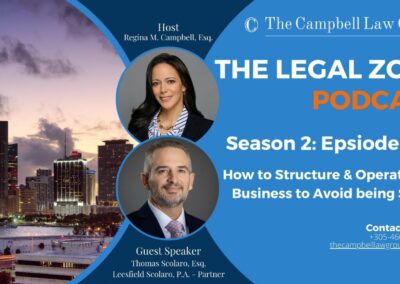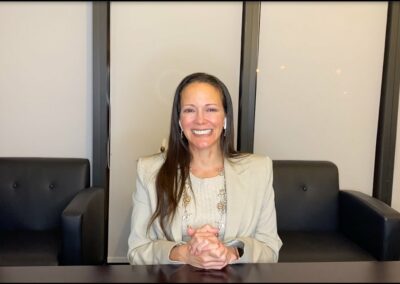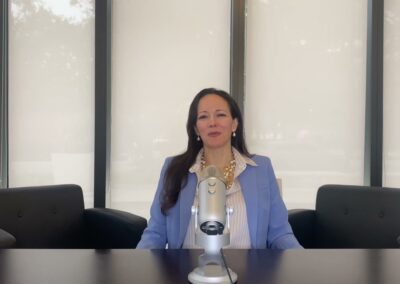What is a breach of fiduciary duty?
In order to comprehend what constitutes a breach of fiduciary duty, it is necessary to have an understanding of who is considered a fiduciary and the circumstances in which a fiduciary owes a duty.
A fiduciary is an individual or organization entrusted with significant trust to manage another’s assets and interests. Fiduciaries are bound to act in the best interests of their clients and are prohibited from considering their own interests when making decisions or providing advice. They have a duty of loyalty and care and are required to act in good faith while safeguarding their clients’ interests.
The duty of a fiduciary to act in the best interest of another can arise either through express or implied means. For instance, statutory provisions define express fiduciary duties for attorneys, stockbrokers, trustees, corporate directors, and partners, among others.
An implied fiduciary duty emerges from unique circumstances where the parties have a confidential or trusting relationship with one another. One example of an implied fiduciary duty could be a situation where an individual consults with a financial advisor on a regular basis for many years, confiding in the advisor about their personal and financial affairs and relying on the advisor’s expertise to make important investment decisions. In such a scenario, the financial advisor may be deemed to owe an implied fiduciary duty to act in the client’s best interest, given the confidential and trusting relationship between them.
Under Florida law, a breach of fiduciary duty claim can proceed in court if the plaintiff can establish that one party has assumed a position of trust and obligation to protect a more vulnerable party (as affirmed in the case of Quinn v. Phipps).
Examples of fiduciaries
- Investment advisors, who manage their clients’ investments
- Trustees, who manage trusts for the benefit of beneficiaries
- Personal representatives, who administer the estates of deceased individuals
- Directors or officers of a company, who are responsible for managing the company in the best interest of shareholders
- Majority shareholders of a company, who have significant control over the company’s affairs
- Attorneys in fact, who are authorized to act on behalf of another person in legal matters
- Joint venturers or partners in a business venture, who have a fiduciary duty to each other
- Agents, who act on behalf of their principals
- Employees to an employer, who owe a duty of loyalty and confidentiality to their employer
- Parties to a contract where one party is required to protect the interest of the other party, or where one party relies on the other party to look after its best interest.
When fiduciaries breach their duty, they are essentially acting against the best interests of the person or entity they represent. A breach of fiduciary duty occurs when the fiduciary acts in a way that benefits themselves at the expense of the person they represent. This can take many forms, including self-dealing, where the fiduciary engages in transactions that benefit themselves at the expense of the person they represent.
For example, a financial advisor who recommends a high-risk investment to their client because it will earn them a larger commission, even though it is not in the client’s best interest, would be in breach of their fiduciary duty. Similarly, a trustee who uses trust assets for their own benefit or a corporate director who engages in insider trading would also be breaching their fiduciary duty.
When a breach of fiduciary duty occurs, the person or entity that has been harmed by the breach can take legal action to recover damages. This can include monetary damages, such as the amount of money lost as a result of the breach, as well as punitive damages to punish the fiduciary for their wrongful conduct.
What constitutes a breach of fiduciary duty?
To put it simply, a breach of fiduciary duty occurs when a fiduciary fails to uphold their duty of loyalty and care owed to their client or beneficiary. This breach can happen when the fiduciary acts against the best interests of their client or beneficiary, resulting in harm or damage to the client or beneficiary. It is important to note that a breach of fiduciary duty is distinct from negligence, which refers to a mistake or failure to meet obligations rather than intentional actions or actions motivated by self-interest.
Examples of a breach of fiduciary duty include:
Here are several examples of actions that can be considered a breach of fiduciary duty:
- Using confidential information obtained from an employer for personal gain
- Making decisions on behalf of a company as a director or officer that do not align with the best interests of the company or shareholders
- Stealing funds from clients or partners
- Cheating beneficiaries of a will or trust
- Mishandling assets of a company or trust
- Concealing critical information required to make a decision from the individual to whom you owe a duty
- Failing to disclose conflicts of interest
- Creating debt on behalf of a company while knowing that the company will not be able to pay for it.
- Stealing business opportunities from your company or employer.
Identifying a breach of fiduciary duty can be challenging and may necessitate a comprehensive examination of the circumstances and the fiduciary’s relationship with the party concerned, as the repercussions of such breaches can be significant.
The consequences of a breach of fiduciary duty can vary depending on the specific circumstances and the severity of the breach. In general, the consequences may include:
- Legal action: The aggrieved party may file a lawsuit seeking damages resulting from the breach of fiduciary duty.
- Monetary damages: If a breach of fiduciary duty is proven, the aggrieved party may be entitled to recover monetary damages, which can include lost profits, restitution, and other financial losses.
- Disgorgement: The fiduciary may be required to disgorge any profits or benefits they received as a result of the breach.
- Injunction: The aggrieved party may seek an injunction to prevent the fiduciary from engaging in further wrongful conduct.
- Removal: If the fiduciary breached their duty, they might be removed from their position and barred from holding similar positions in the future.
- Criminal charges: In some cases, breaches of fiduciary duty can rise to the level of criminal activity, resulting in criminal charges and penalties.
Navigating the Complexities of Breach of Fiduciary Duty Cases with The Campbell Law Group
Breach of fiduciary duty cases can be complex and challenging to navigate. These cases typically involve allegations of betrayal, deception, and financial misconduct by someone who has a legal or ethical obligation to act in the best interests of another party. Fiduciary relationships can exist between various parties, such as trustees and beneficiaries, corporate officers and shareholders, attorneys and clients, and financial advisors and clients.
It is essential to work with an attorney who has experience in identifying, prosecuting, and defending breach of fiduciary duty claims. The Campbell Law Group is a law firm that has the experience and competency necessary to handle these types of cases. We have a team of skilled attorneys who are committed to helping clients navigate the legal process and achieve their desired outcomes.
The Campbell Law Group represents clients in breach of fiduciary duty cases throughout South Florida, including Miami Beach, Coral Gables, Coconut Grove, South Miami, Pinecrest, Brickell, Edgewater, Doral, and Wynwood. We also handle cases in Broward and Palm Beach County, Tampa, Orlando, and the rest of Florida. With this wide coverage area, the Campbell Law Group is well-positioned to serve clients throughout the state.
In representing clients in breach of fiduciary duty cases, the Campbell Law Group takes a thorough and detail-oriented approach. The firm’s attorneys conduct a comprehensive investigation into the matter, gathering all relevant evidence to build a strong case and pursue the appropriate legal remedies, such as compensatory and punitive damages or equitable relief. We are well-equipped to handle these challenging cases and help clients achieve the best possible outcomes.
Frequently Asked Questions
What kind of damages can be awarded for a breach of fiduciary duty?
When a fiduciary acts against the interests of its principal or for its own profit without the express consent of the principal, it may be met with serious litigious consequences.
- Compensatory damages: This includes recovery of the amount of loss as a direct result of the breach of fiduciary duty, disgorgement of profit, and in some cases, lost profit and attorney fees.
- Punitive damages: These damages are awarded to punish and deter such behavior again. The amount awarded usually corresponds with the severity of the actions or omissions of the fiduciary. Punitive damages are reserved for cases where the fiduciary has acted with great malice or fraud.
- Equitable relief: This can take the form of accounting, injunctive relief, forfeiture, the appointment of a receiver, constructive trust, and rescission of the transaction or agreement.
Can a breach of fiduciary duty be classed as a crime?
While most breaches of fiduciary duty are addressed in civil court, there are certain circumstances where the actions of the fiduciary may also violate criminal law. Examples of criminal breaches of fiduciary duty include theft, embezzlement, fraud, identity theft, and abuse of an elderly person. In such cases, the fiduciary may face criminal charges and, if found guilty, may be subject to fines, imprisonment, or other penalties.
How to defend against breach of fiduciary duty claims?
In any breach of fiduciary duty case, the main defense is to demonstrate that the fiduciary’s actions fall within the parameters of the foundational documents (such as a will or trust) and are in compliance with applicable Florida laws. For instance, even if beneficiaries contend that a trustee, guardian, or personal representative made “inappropriate investments,” a court may consider these investments as reasonable.
In addition to proving that their actions were within the bounds of foundational documents and the law, fiduciaries have other defenses available to them that go beyond the factual breach claim. These defenses include:
- Equitable Defense of Laches: This defense argues that there has been an unreasonable delay in asserting the claim.
- Statute of Limitations: This defense asserts that the case is time-barred by law.
- Situational-Specific Defenses: This category of defense includes exculpatory clauses and self-executing accounting release provisions.
Self-executing accounting release provisions are often included in trusts, and they essentially excuse any bad acts of the fiduciary or trustee if no beneficiary has objected after a specified accounting period. Exculpatory clauses are another type of defense that can limit the fiduciary’s liability for unintentional mistakes or errors in judgment. However, they cannot excuse intentional bad acts committed by the fiduciary.
What is the statute of limitations for breach of fiduciary duty claims in Florida?
The statute of limitations for breach of fiduciary duty claims in Florida is four years from the date of the breach or discovery of the breach, whichever comes first. However, there may be exceptions to this rule depending on the circumstances of the case.















